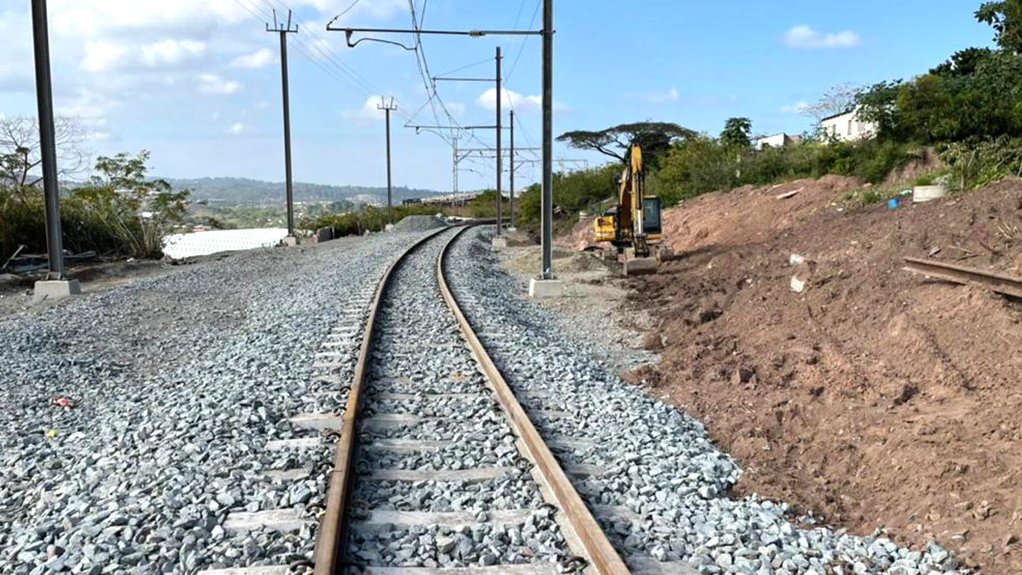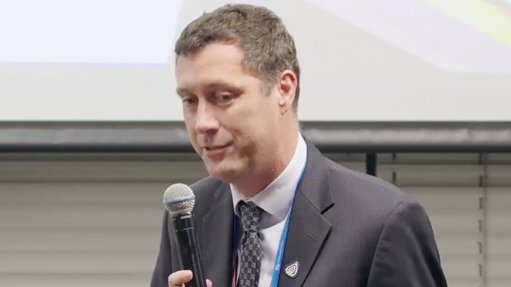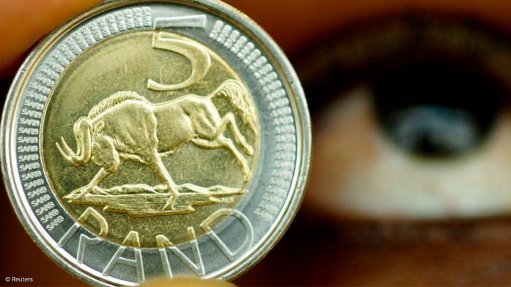TFR managing less than half of its maintenance investment requirements
State-owned Transnet Freight Rail (TFR) is meeting less than half of its necessary maintenance investment, with inflation significantly expanding the gap in year-on-year funding requirements.
Further exacerbating this, TFR CE Russell Baatjies said, was the persistent drain on maintenance funds by the need to combat theft, vandalism and network disruptions linked to climate change.
Speaking on the second day of the South African Heavy Haul Association (SAHHA) conference, on August 28, in Johannesburg, he pointed out that in 2017/18, the maintenance investment requirement was R5.4-billion. However, only R2.3-billion was spent.
This figure has since ballooned to a maintenance investment requirement of R10.5-billion in 2023, with TFR only being able to afford an investment of R4.4-billion.
“The number increases every year because of inflation. This situation is made worse in that much of the allocation that we have for maintenance is used up by theft. In 2023, we spent R805-million on replacing components and assets that were vandalised or stolen.
"This backlog is increasing, unless we can find a solution to make sure that we invest more in the South African rail network infrastructure,” Baatjies said, noting that a lack of thorough maintenance was causing existing problems to become significantly more pressing and expensive to fix.
“If you don't do maintenance this year, it doesn't catch you this year. It might not even catch you next year or the year thereafter. But when it does start catching you, you have a big problem. At some point, your [equipment] will break and it will be costly to repair. This is exactly the situation we find ourselves in for this year,” he added.
He said the situation was being exacerbated by increasing changes in weather patterns, putting the rail network infrastructure at risk.
“Climate change is real. We have historic trends in rainfall patterns, which enable us to see where there will be possible flooding. We then install culverts and make sure there's proper flow of water through these culverts, so that we don't have washaway. However, most of the historic trends that we have access to have changed. We now see flooding in areas that we did not see it before. This is why you have the big washaways in some of the KwaZulu-Natal areas, and more recently in the Western Cape,” Baatjies noted.
He also pointed out more extreme temperatures, leading to TFR needing to implement safety precautions, such as speed restrictions during winter, to prevent infrastructure and asset damage, as well as derailments.
Baatjies noted that safety performance improvements were still needed, with derailments being one of the most pressing points of concern and causing the largest disruptions.
He pointed out that there had been a 20% overall reduction in derailments so far this year across the TFR network.
“We need to improve our safety performance throughout. A 20% reduction is nothing to write home about. A derailment is still a derailment, and we need to bring these down further,” he said.
Baaitjies pointed out that, on the ore corridor, there were six derailments in 2023, compared with three so far this year. However, he implied that this improvement was not a result of improved infrastructure or operational excellence, but rather good fortune.
“We still have the same risks that we had last year. We need to improve the state of the rail network to reduce derailments and security incidents,” he said.
Article Enquiry
Email Article
Save Article
Feedback
To advertise email advertising@creamermedia.co.za or click here
Press Office
Announcements
What's On
Subscribe to improve your user experience...
Option 1 (equivalent of R125 a month):
Receive a weekly copy of Creamer Media's Engineering News & Mining Weekly magazine
(print copy for those in South Africa and e-magazine for those outside of South Africa)
Receive daily email newsletters
Access to full search results
Access archive of magazine back copies
Access to Projects in Progress
Access to ONE Research Report of your choice in PDF format
Option 2 (equivalent of R375 a month):
All benefits from Option 1
PLUS
Access to Creamer Media's Research Channel Africa for ALL Research Reports, in PDF format, on various industrial and mining sectors
including Electricity; Water; Energy Transition; Hydrogen; Roads, Rail and Ports; Coal; Gold; Platinum; Battery Metals; etc.
Already a subscriber?
Forgotten your password?
Receive weekly copy of Creamer Media's Engineering News & Mining Weekly magazine (print copy for those in South Africa and e-magazine for those outside of South Africa)
➕
Recieve daily email newsletters
➕
Access to full search results
➕
Access archive of magazine back copies
➕
Access to Projects in Progress
➕
Access to ONE Research Report of your choice in PDF format
RESEARCH CHANNEL AFRICA
R4500 (equivalent of R375 a month)
SUBSCRIBEAll benefits from Option 1
➕
Access to Creamer Media's Research Channel Africa for ALL Research Reports on various industrial and mining sectors, in PDF format, including on:
Electricity
➕
Water
➕
Energy Transition
➕
Hydrogen
➕
Roads, Rail and Ports
➕
Coal
➕
Gold
➕
Platinum
➕
Battery Metals
➕
etc.
Receive all benefits from Option 1 or Option 2 delivered to numerous people at your company
➕
Multiple User names and Passwords for simultaneous log-ins
➕
Intranet integration access to all in your organisation





















